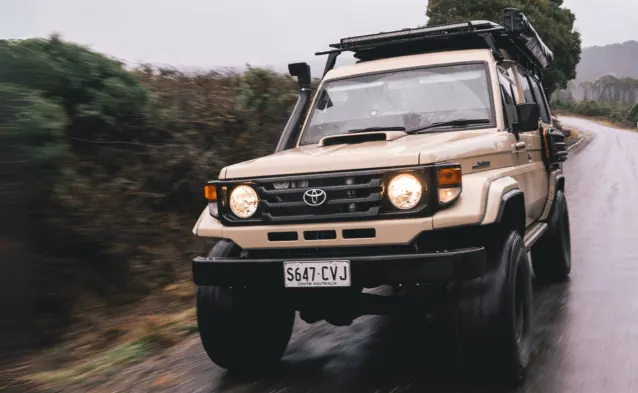If there's one thing the GFC taught us, it's how to make our family budget go further. There's nothing like a free family holiday. Getting out into our own backyard and exploring the great Australian outback is a great option for a family holiday. Of course, the best thing about going camping is that you can do it for free, or almost for free. By choosing free camping sites in Australia, you can dramatically reduce your accommodation costs, leaving you with more dollars to spend on the important stuff - having fun!
But before you pack up the car with the kids and the dog and hightail it to the first free camping site, there's a few essential things you need to know:
1. Map it out
Finding free campsites can be a challenge...unless you know where to look. One of the best resources out there is Camps Australia Wide. They release a new version every year - the latest is version 6 - and it can be purchased at motoring organisations, map shops, good bookshops and, of course, online. You can also now get the book as an app, helping you find last minute free camping spots while on the road. Another good buy is Guide to Free Campsites 2013-14, which lists over 800 free campsites around Australia complete with individual campsite reports.
2. Check your kit
Wherever you're camping, you will need to invoke the old Boy Scout motto: Be Prepared. The kit that you need will depend on the type of campsite you're staying at, as well as the kind of camping trip you're after. Want a back-to-basics down and dirty camping trip? Great - pack light - don't forget the toilet paper and head torches! But the chances are you're after something a little more comfortable for the whole family. That means you need to think about how you'll go about your daily activities: Does the campsite offer washing facilities? Where will you cook and eat? How will you power your devices? Check the facilities of the camping grounds and pack your kit accordingly. You might want to invest in a Portable Generator to keep powered up on your trip.
3. Get connected
Even when you want to get away, you need to make sure you are connected should there be an emergency. Not only do you need to consider the network coverage of the places you're visiting, but you also need to consider how you will keep your mobile phone powered up. A Portable Generator is a great way to keep your mobile phone and devices powered up in case of emergency, or recharge your battery packs. Hopefully, you won't need to use them - but it's always best to be prepared.
4. Fire and Water: Know the rules
Wherever you are, every campsite has unwritten rules when it comes to water, rubbish, fires and barbecues. First things first, it's always a wise idea to have your own supply of water in case you can't access water at the campsite. The more remote you're planning to camp, the more water you should keep on board. When I was a kid, no camping trip was complete without a campfire. But times have changed and now if you're staying in a national park area, you won't be allowed to collect wood for a fire - it's BYO firewood. You should also have a contingency in case there are fire bans in place (check the Landgate Firewatch website). A gas cooktop is always a good backup for every camping trip.
5. Your home from home
Treat the campsite as your home away from home. That means be respectful of the facilities and surroundings. Take your rubbish away with you. Stay quiet after dark. Leave the campsite as you'd like to find it. And have fun!
For more information, visit www.mygenerator.com.au
DISCLAIMER* Please note, this advice is general in nature and we strongly recommend consulting the product manual and where relevant, a professional installer.















